By Ron Kahlow, on Fri Apr 20, 2012 at 1:30 PM ET We welcome a new partner at the site, Vote-USA.org, with a piece by its founder and director, Ron Kahlow:
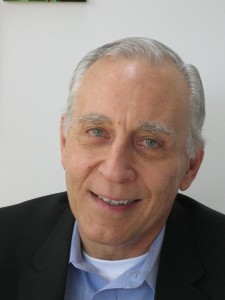 With two clicks and an address, Vote-USA.org provides voters with their customized sample ballot containing pictures of the candidates and their social media links. In another click, a voter can compare the candidates’ biographical information for any office in a side-by-side manner. Subsequent clicks allow the voter to compare the views and positions of the candidates on the particular issues that concern the voter, always side-by-side for easy comparison. In addition, all of the information comes directly from the candidates themselves or is extracted from their campaign websites, i.e., there is no marketing spin or deception. That is the real power of the Vote-USA.org website. It is the ability to provide each voter the specific unfiltered views and positions of the candidates that they seek, quickly and easily. It is to enable the independent-minded voters to make their own decisions about candidates and ballot measures, and help them vote on a more informed basis. With two clicks and an address, Vote-USA.org provides voters with their customized sample ballot containing pictures of the candidates and their social media links. In another click, a voter can compare the candidates’ biographical information for any office in a side-by-side manner. Subsequent clicks allow the voter to compare the views and positions of the candidates on the particular issues that concern the voter, always side-by-side for easy comparison. In addition, all of the information comes directly from the candidates themselves or is extracted from their campaign websites, i.e., there is no marketing spin or deception. That is the real power of the Vote-USA.org website. It is the ability to provide each voter the specific unfiltered views and positions of the candidates that they seek, quickly and easily. It is to enable the independent-minded voters to make their own decisions about candidates and ballot measures, and help them vote on a more informed basis.
Vote-USA.org has been providing this service to voters since the 2004 General Election. But many voters would probably ask why they have not found this resource during the last 8 years. Frankly, it is a tale of triumph and disaster, a tale of naivety, a tale of obsession, a tale of pride and embarrassment, a tale of not knowing when to give up, and a tale of David and Goliath.
My tale begins when I went to the polls to vote in the 2003 Virginia off-year election for Virginia Senate and House offices. When I entered the voting booth, I didn’t know anything about any single candidate or anything about the ballot measures. I didn’t even know there were any ballot measures. As I stood in the booth, I thought, what’s the value of voting if you don’t know who you are voting for, and making thoughtless decisions about ballot measures? Then driving home, I saw all those political posters trashing up the highways. This got my blood boiling. I thought to myself, is this any way to select the people to represent me? And, when I reached home and turned on the TV, there was an insulting, deceptive candidate-bashing political ad. The idea of spending billions of dollars to deceive me to vote this way or that pushed me over the edge. At that moment, I envisioned creating Vote-USA.org to fix this blatant fundamental flaw in our political system.
In 2003, I owned an Internet digital marketing agency, Business OnLine (BusinessOL.com), and I was convinced I could use my for-profit company resources to develop a solution to fix this problem. On a hobby basis, I built the first version of what is today Vote-USA.org and it was operative for the 2004 General Elections. I sent letters to all of the Federal and State candidates with their login credentials to enter whatever information they wanted. Few responded because the system is stacked in favor of incumbents. I was too naïve not to have realized that there was no incentive for them to change the game with this new Internet trump card. But, voters responded overwhelmingly. Remember the 2004 TV ad of people watching the number of hits promoting a product via ecommerce? Well that is what we experienced. As Election Day approached, a trickle turned into a torrent and then simply exploded. Triumph quickly turned to disaster as word spread. Our servers became overloaded and could not respond to the overwhelming demand. Frankly, for somebody in the Internet space business, this was an embarrassment.
Clearly we were easing the pain of voters because there was such enormous demand for this tool. So, the next couple years were spent attempting to rectify the problems of the 2004 elections. We built a farm of servers to handle the expected load. Since most candidates would not provide us with their information, we built the tools necessary to easily scrape their websites. Then, we hired a firm to do the scraping. We also developed tools to readily enter state election rosters.
Our efforts marginally paid off in the 2005 and 2006 elections. It seemed that regardless of how many servers we employed, the demand always exceeded the capacity. Although we keep Vote-USA.org up for longer periods of time, we could never keep the website up through the entire voting period.
But the biggest problem of all was cost. The financial resources needed far exceeded everybody’s wildest imagination. Voters were very kind with their tax deductible donations to support our operation, but this was only a very tiny fraction of what was needed. So, I and a friend covered the difference. Now, any reasonable thinking person would have thrown in the towel. But, one of my flaws is not knowing when to give up. I became obsessed with the mission and too proud to call it quits.
But that was not the end of our pains. Not long after the 2006 elections, we were hammered by the Internet Goliath Google. Vote-USA.org suddenly stopped appearing on all of Google’s search listings and all our pages had no Google ranking. We were totally blocked by Google and other search engines. We made numerous attempts, over a period of years, to find the reason(s) for this action and made numerous attempts to get the block removed. Finally, only after a very powerful Washington insider approached Google with our complaint did Google reveal the reason for its blocking action and finally we managed to resolve this problem. So, if you ask why you have not found us sooner, it is because the gatekeeper of the Internet locked the gate on us and only recently has it been opened. We believe there was nothing malicious on Google’s part. The problem centered on Google’s inability to effectively spider and index our website.
Our final, and most significant problem of voter traffic at election time has been solved by moving our website onto the cloud. We now have almost unlimited power at election time.
So, where are things today? Well we have built what we set out to build in 2003 and all of the problems and obstacles encountered so far have, to my knowledge, been solved. We are, however, without financial resources to continue; so, we manage to keep things running on a month-to-month basis. But, our most valuable asset is the will to continue regardless of what is thrown at us. And, we believe that what we are doing is not only helping citizens vote on a more informed basis but also serving as a counterbalance to the corrupting influence of money in politics. We believe that these are things worth fighting for regardless of the cost.
By RP Staff, on Thu Apr 19, 2012 at 10:00 AM ET 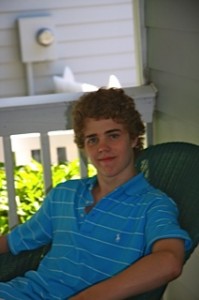 For three generations, John Y. Browns have been active Democratic politicians in Kentucky. For three generations, John Y. Browns have been active Democratic politicians in Kentucky.
John Y. Brown Sr., my great-grandfather, was an avid supporter of FDR’s New Deal while serving a term in the US House of Representatives and was a champion of various liberal causes in Kentucky’s state House for several decades.
John Y. Brown Jr., my grandfather, served one term as a Democratic governor of the Commonwealth and was the national chairman for the Democratic Telethons of the early 1970s.
My father, John Y. Brown III, was a two term Democratic Secretary of State and delegate to the Democratic National Convention in 1996.
Being the fourth John Y. Brown, most people would expect that I would follow the tradition and become a Democrat. However, when I turn 18 later this month, I plan on registering with the Republican Party. It has been a decision that I have thought out fully and feel good about—even if it appears to break with a family political tradition.
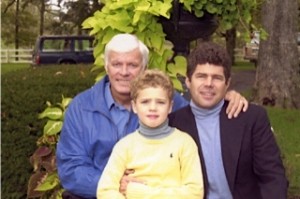 As my political philosophy developed over the years, it became clearer and clearer that I was drifting rightward. My father would tell me that he believed the temperament we’re born with influences our political philosophy—as much as our ideas and beliefs. My personal political journey has confirmed this in many ways. Every time I heard about an issue where there was major disagreement between the political parties, I found myself siding with the Republicans over the Democrats. Eventually, I stopped resisting this and embraced my inclination toward a conservative political philosophy. As my political philosophy developed over the years, it became clearer and clearer that I was drifting rightward. My father would tell me that he believed the temperament we’re born with influences our political philosophy—as much as our ideas and beliefs. My personal political journey has confirmed this in many ways. Every time I heard about an issue where there was major disagreement between the political parties, I found myself siding with the Republicans over the Democrats. Eventually, I stopped resisting this and embraced my inclination toward a conservative political philosophy.
Read the rest of…
John Y. Brown, IV: Why I’m Registering As a Republican
By Jonathan Miller, on Fri Mar 2, 2012 at 12:30 PM ET James Fallows, my favorite national journalist, as well as a long time analyst of the presidency, offers some fascinating insight in his latest cover story for The Atlantic on what makes our President tick, and what this means for the future of his presidency:
Having seen a number of presidencies unfold, and some unravel, I am fully aware of how difficult it is to assess them in real time. What I feel I’ve learned about Obama is that he was unready for the presidency and temperamentally unsuited to it in many ways. Yet the conjunction of right-wing hostility to his programs and to his very presence in office, with left-wing disappointment in his economic record and despair about his apparent inability to fight Republicans on their own terms, led to an underappreciation of his skills and accomplishments—an underappreciation that is as pronounced as the overestimation in those heady early days. Unprepared, yes. Cool to the point of chilly, yes. For all his ability to inspire and motivate people en masse, for all his advertised emphasis on surrounding himself with a first-rate “team of rivals,” Obama appears to have been unsavvy in the FDR-like arts of getting the best from his immediate team and continuing to attract the best people to him.
Yet the test for presidents is not where they begin but how fast they learn and where they end up. Not even FDR was FDR at the start. The evidence is that Obama is learning, fast, to use the tools of office. Whether he is learning fast enough to have a chance to apply these skills in a second term—well, we’ll reconvene next year.
Click here to read the full piece from The Atlantic.
By Jeff Smith, on Tue Feb 28, 2012 at 1:15 PM ET In several well-read pieces here at The Recovering Politician, former Missouri State Senator (and contributing RP) Jeff Smith has analyzed the impact of redistricting on his one-time political rival Congressman Russ Carnahan, and then predicted that Carnahan would ultimately choose to challenge his fellow Democratic Congressman William Lacy Clay.
Turns out, Jeff was right. Here’s an excerpt from Real Clear Politics, “Carnahan Files for Congressional Seat.”
Scores of hopeful candidates turned out Tuesday to file for political offices in Missouri, including a pair of incumbent St. Louis congressman now poised to square off in a Democratic primary, despite legal uncertainty over the district boundaries.
The candidacy filing period for the 2012 elections kicked off as planned, even though Missouri still lacks a final map for the state Senate districts and the Missouri Supreme Court has yet to rule on challenges to the state and U.S. House districts.
The first to file Tuesday was Democratic U.S. Rep. Russ Carnahan of St. Louis, whose 3rd District was carved up and re-assigned to surrounding districts under a reapportionment plan enacted by the Republican-led state Legislature after the 2010 census. Until Tuesday, Carnahan has steadfastly affirmed he would run again in 2012 but had remained silent about in which district he would run _ hoping the Supreme Court would toss out the new map and order a do-over on the boundaries.
Carnahan filed to run in the 1st District in St. Louis, which currently is held by Democratic U.S. Rep. William Lacy Clay. Not too far behind Carnahan in line, Clay also filed to run for re-election Tuesday, setting up a battle in the August primaries that both congressmen declared they could win.
Read the full piece from Real Clear Politics here.
By Ronald J. Granieri, on Mon Feb 20, 2012 at 10:30 AM ET 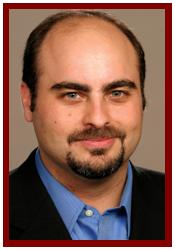 Ron Granieri: Rebuttal #2 Ron Granieri: Rebuttal #2
[Artur Davis’ Provocation, Robert Kahne’s Rebuttal #1]
These days, when people speak abstractly about the kind of President the country needs, they usually say that it should be someone with legislative experience, who can reach across the aisle to compromise with the other party, who can make difficult decisions, and who enjoys the respect, even friendship of other world leaders, thus improving the international standing of the United States.
In my lifetime, we had just such a President, and no one appreciated him much. He still receives only occasional credit from history and policy geeks, and makes little impression on the public memory, never showing up on anyone’s list of the greatest Presidents. And yet, the closer you look at the actual record, the more of a gem he appears to have been.
I am talking of course about Gerald R. Ford.
I can hear the gasps now. Wait, you say, you mean the guy who fell down the stairs of Air Force One and helped launch the career of Chevy Chase and “Saturday Night Live?” The guy whose name graces the title of one of John Updike’s lamer late novels? The guy who pardoned Richard Nixon? That Gerald Ford?
Read the rest of…
The RPs Debate Presidential Greatness: Ron Granieri Rebuts
By Robert Kahne, RP Staff, on Mon Feb 20, 2012 at 9:30 AM ET Robert Kahne: Rebuttal #1
[Artur Davis’ Provocation]
I think it’s time to throw a bit of kerosene into this debate and see what catches on fire.
I’ve only been alive for a quarter century–a long enough time to see a mere five presidencies. All five of the men who have held the highest office in the United States since my birth have their detractors, but I believe there exists one President who will be held in the highest esteem by future generations; as well as the man I believe to have held the office with the most courage, created the most positive change, and wielded greatest political acumen. That man is the current President: Barack Obama.
With a political science major, you can pick apart nuanced political issues.
It is extremely difficult to abstract from the present when it comes to judging Presidents. Consider the cases of men like James K. Polk and Harry S Truman: it took our country decades in order to give these men the accolades they deserved. However, as a student of policy and of political science, I believe President Obama will go down in history as one of our greatest Presidents regardless of the outcome of the election in November.
Read the rest of…
The RPs Debate Presidential Greatness: Robert Kahne Rebuts
By Artur Davis, on Mon Feb 20, 2012 at 8:30 AM ET Over the past month, we’ve launched a new tradition at The Recovering Politician: a great virtual debate on the issues of the day among our recovering politicians; with provocations, rebuttals, responses, and defenses. Our first discussion focused on presidential leadership; our second on legalizing marijuana; our third, Tim Tebow; our fourth, expanded gambling, and our fifth, the GOP primary mudfest.
On this Presidents’ Day, Artur Davis leads off a discussion on presidential greatness. What makes a president stand out among others? Who are the greatest chief executives of our lifetime? Join in the fun:
Let’s assume that there are two presidents whose greatness is not is dispute: Lincoln and FDR, both won defining wars that might have gone the other way absent superior leadership; both defined their political times by in Lincoln’s case, creating a new party, and in FDR’s case, re-conceiving a stagnant, fading party into a modern progressive one. I would venture there are three others who weren’t tested quite as severely but who dramatically strengthened the country and the office of president: Washington (who affirmed that the country was governable as a republic) Thomas Jefferson (who affirmed that the country’s future was westward, and expansionist) and Teddy Roosevelt (who enshrined the ideal of restraining corporate power and size, and who did so in an era when both parties were dominated by economic conservatives).
Then for good measure, throw in Andrew Jackson and Harry Truman at the bottom of the top tier, for all their petty prejudices and their small-mindedness toward their enemies, both had their transcendent moments: Jackson democratizing a country that was veering toward becoming an oligarchy, and Truman shoring up vulnerable democracies from Greece to Israel, and as a result, denying the Soviet Union ownership of the second half of the 20th Century.
Is there a modern president who makes a claim for membership on that list? I’m spending a lot of my time now at an institution that venerates John Kennedy. The argument for Kennedy is that he revitalized the ideal of civic commitment at a time when McCarthyism and fifties materialism had gutted it; that his decision-making skills in the Cuban Missile Crisis averted a nuclear war; and that he gave the cause of civil rights a moral boost at a time when it desperately needed it. The case against Kennedy is that his thousand or so days was too brief, too devoid of serious legislative accomplishments; that he laid the foundation for a disaster in Vietnam,; and that he was too late to the cause of civil rights to deserve much credit for it.
Read the rest of…
The RPs Debate Presidential Greatness: Artur Davis Provokes
By Michael Steele, on Mon Jan 16, 2012 at 1:30 PM ET 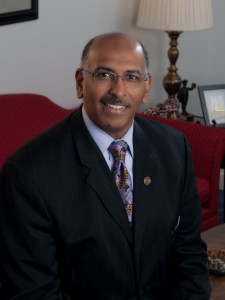 The importance of Dr. King’s contributions cannot be over-stated or diminished by the lapse of time. His fight for the freedom, equality, and dignity of all races and peoples remains as important today as it was on April 4, 1968, the day he was killed. The importance of Dr. King’s contributions cannot be over-stated or diminished by the lapse of time. His fight for the freedom, equality, and dignity of all races and peoples remains as important today as it was on April 4, 1968, the day he was killed.
So, as we reflect on this man of history, I hope we appreciate Dr. King’s courage, vision, strength, humanity, but most importantly, his perseverance.
Dr. King’s perseverance transformed him; it made him not just a legendary leader, it signals to us in these times the challenge remains to “take up the cause of freedom”.
Perseverance enabled Dr. King not only to achieve success, but to achieve his dream; a that dream that draws us even today; a dream that embodied the civil rights movement but importantly, a dream that created a legacy for future generations;
Dr. King’s efforts helped close a chapter in America’s history, a chapter which chronicled the burden of slavery and institutionalized discrimination. A chapter which imprinted segregated public accommodations and schools on the very soul of African American life.
A chapter in which the foundation of America—freedom and equality—was rocked by water hoses, police dogs and racism.
However, Dr. King also knew that this movement towards civil rights would open a new chapter for America—a chapter we are still writing today; a chapter steeped in hope, opportunity and true equality.
But, for many this new chapter, which reflects America’s journey from slavery to emancipation; from Jim Crow to affirmative action also, belies an accomplished agenda.
The illiterate, the suffering, the addicted, the homeless—they demand more from our generation than nice words or one more government program.
What they demand, and what you and I must provide is an opportunity to heal and to teach, to turn dreams into reality and hope into action for the kid growing up on the streets instead of in a home; for the family struggling to make ends meet; for the teacher mired in paperwork while her students are mired in a failing school.
Thurgood Marshall once said, that “none of us has gotten where we are solely by pulling ourselves up from our bootstraps. We got here because somebody bent down and helped us.”
Read the rest of…
Michael Steele: Dr. King’s Perseverance
By John Y. Brown III, on Mon Jan 16, 2012 at 12:30 PM ET 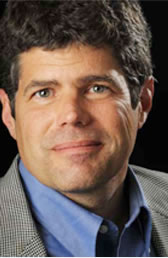 What has been our greatest act honoring MLK? What has been our greatest act honoring MLK?
A fair question to ask ourselves today.
In 1984, I had the privilege of studying abroad with a group of 500 other students. We spent 4 days and 3 nights in Capetown, South Africa. Nelson Mandela, an anti-Apartheid activist, was in prison and we were taught that he’d surely die there.
Apartheid policy, South Africa’s legal segregation, ensured that the 20% of the population that was white would keep the 80% that were non-white in subjugation.
But that didn’t happen. Apartheid was on a collision course with history. Nelson Mandela not only left prison but in 1994 was elected the first black president of South Africa.
But in 1984 things were very different. Of the 500 students in the program only 4 visited a “Township,” an impoverished urban area where non-white workers were housed.
I was one of them….and encouraged the other three to join me in a taxi ride through a nearby Township. I wasn’t being a martyr. I was mostly curious. My heart went out to the non-whites in South Africa who weren’t allowed to walk on city streets after midnight.
I had given half my cheeseburger the night before to a black man who asked for it–but wasn’t allowed in the diner at that time of night. I felt like I’d traveled back in time 20 years….but wanted mostly to understand.
The cab driver drove us through the Township offering commentary about how the men were bused in from hours away and would stay for several weeks at a time. The scraps from cows (tongue, nose, unwanted parts) were sold on the streets as flies were swatted away unsuccessfully.
I brought a book by MLK with me that day–a collection of his thoughts and quotes. I’m not sure why. Before leaving the Township, I asked the cab driver to slow down. Several men looked inside the cab curious about the 4 young white boys inside. I rolled down the window and handed one the MLK book on civil disobedience and waved good-bye.
The cab driver warned me that was dangerous to do and I shouldn’t have done that. He was an Africaaner. A race with slightly more rights than blacks but still significantly inferior rights to whites.
I doubt the book ever got read becoming a source of inspiration. Who knows? But I’m proud of my act….not really a brave act but a small but caring act showing I was engaged…..and in response to a system we all knew was untenable.
I was not rebelling or meddling where I shouldn’t. I was trying in some very small and almost insignificant way to help —that was personal to me. Of course, the book I gave didn’t matter in the scheme of things….but mattered to me. It was something I could do at that moment. And I did it. And 27 years later, it stands out to me as the personal act that most honored MLK. A great man we honor today.
By Jonathan Miller, on Mon Jan 16, 2012 at 12:00 PM ET 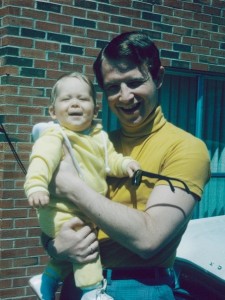 My dad and I circa 1968 On this day of celebration of the life of Martin Luther King, Jr., we re-run this piece — in which the RP honored King, his father, and contributing RP Kathleen Kennedy Townsend’s father — that first appeared at The Recovering Politician on April 4, 2011.
Today — as on every April 4 — as the nation commemorates the anniversary of one of the worst days in our history; as some of us celebrate the anniversary of the greatest speech of the 20th Century; my mind is on my father. And my memory focuses on a winter day in the mid 1970s, sitting shotgun in his tiny, tinny, navy blue Pinto.
I can still remember my father’s smile that day.
He didn’t smile that often. His usual expression was somber, serious—squinting toward some imperceptible horizon. He was famously perpetually lost in thought: an all-consuming inner debate, an hourly wrestling match between intellect and emotion. When he did occasion a smile, it was almost always of the taut, pursed “Nice to see you” variety.
But on occasion, his lips would part wide, his green eyes would dance in an energetic mix of chutzpah and child-like glee. Usually, it was because of something my sister or I had said or done.
But this day, this was a smile of self-contented pride. Through the smoky haze of my breath floating in the cold, dense air, I could see my father beaming from the driver’s seat, pointing at the AM radio, whispering words of deep satisfaction with a slow and steady nod of his head and that unfamiliar wide-open smile: “That’s my line…Yep, I wrote that one too…They’re using all my best ones.”
He preempted my typically hyper-curious question-and-answer session with a way-out-of-character boast: The new mayor had asked him—my dad!—to help pen his first, inaugural address. And my hero had drafted all of the lines that the radio was replaying.
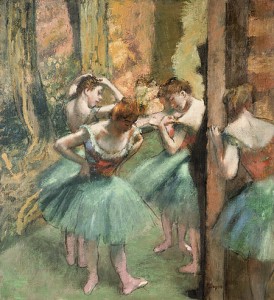 This was about the time when our father-son chats had drifted from the Reds and the Wildcats to politics and doing what was right. My dad was never going to run for office. Perhaps he knew that a liberal Jew couldn’t get elected dogcatcher in 1970s Kentucky. But I think it was more because he was less interested in the performance of politics than in its preparation. Just as Degas focused on his dancers before and after they went on stage—the stretching, the yawning, the meditation—my father loved to study, and better yet, help prepare, the ingredients of a masterful political oration: A fistful of prose; a pinch of poetry; a smidgen of hyperbole; a dollop of humor; a dash of grace. When properly mixed, such words could propel a campaign, lance an enemy, or best yet, inspire a public to wrest itself from apathetic lethargy and change the world. This was about the time when our father-son chats had drifted from the Reds and the Wildcats to politics and doing what was right. My dad was never going to run for office. Perhaps he knew that a liberal Jew couldn’t get elected dogcatcher in 1970s Kentucky. But I think it was more because he was less interested in the performance of politics than in its preparation. Just as Degas focused on his dancers before and after they went on stage—the stretching, the yawning, the meditation—my father loved to study, and better yet, help prepare, the ingredients of a masterful political oration: A fistful of prose; a pinch of poetry; a smidgen of hyperbole; a dollop of humor; a dash of grace. When properly mixed, such words could propel a campaign, lance an enemy, or best yet, inspire a public to wrest itself from apathetic lethargy and change the world.
Now, for the first time, I realized that my father was in the middle of the action. And I was so damn proud.
– – –
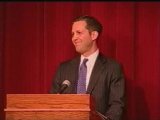 Click above to watch my eulogy for my father My dad’s passion for words struck me most clearly when I prepared his eulogy. For the past two years of his illness, I’d finally become acquainted with the real Robert Miller, stripped down of the mythology, taken off my childhood pedestal. And I was able to love the real human being more genuinely than ever before. The eulogy would be my final payment in return for his decades of one-sided devotion: Using the craft he had lovingly and laboriously helped me develop, I would weave prose and poetry, the Bible and Shakespeare, anecdotes and memories, to honor my fallen hero. In his final weeks of consciousness, he turned down my offer to share the speech with him. I will never know whether that was due to his refusal to acknowledge the inevitable, or his final act of passing the torch: The student was now the author.
While the final draft reflected many varied influences, ranging from the Rabbis to the Boss (Springsteen), the words were my own. Except for one passage in which I quoted my father’s favorite memorial tribute: read by Senator Edward Kennedy at his brother, Robert’s funeral:
My brother need not be idealized, or enlarged in death beyond what he was in life, to be remembered simply as a good and decent man, who saw wrong and tried to right it, saw suffering and tried to heal it, saw war and tried to stop it.
Read the rest of…
The RP: My Father, King, RFK & The Greatest Speech of the 20th Century
|
The Recovering Politician Bookstore
|
 With two clicks and an address, Vote-USA.org provides voters with their customized sample ballot containing pictures of the candidates and their social media links. In another click, a voter can compare the candidates’ biographical information for any office in a side-by-side manner. Subsequent clicks allow the voter to compare the views and positions of the candidates on the particular issues that concern the voter, always side-by-side for easy comparison. In addition, all of the information comes directly from the candidates themselves or is extracted from their campaign websites, i.e., there is no marketing spin or deception. That is the real power of the Vote-USA.org website. It is the ability to provide each voter the specific unfiltered views and positions of the candidates that they seek, quickly and easily. It is to enable the independent-minded voters to make their own decisions about candidates and ballot measures, and help them vote on a more informed basis.
With two clicks and an address, Vote-USA.org provides voters with their customized sample ballot containing pictures of the candidates and their social media links. In another click, a voter can compare the candidates’ biographical information for any office in a side-by-side manner. Subsequent clicks allow the voter to compare the views and positions of the candidates on the particular issues that concern the voter, always side-by-side for easy comparison. In addition, all of the information comes directly from the candidates themselves or is extracted from their campaign websites, i.e., there is no marketing spin or deception. That is the real power of the Vote-USA.org website. It is the ability to provide each voter the specific unfiltered views and positions of the candidates that they seek, quickly and easily. It is to enable the independent-minded voters to make their own decisions about candidates and ballot measures, and help them vote on a more informed basis.















